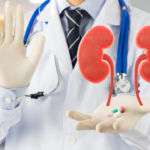
Urinary incontinence is a disease in which the person faces a problem of involuntary leakage of urine. In simple words, a person urinates when they do not want to. This problem is affecting many people. It is more common in women than in men.
Urinary incontinence causes physical discomfort and embarrassment. Also affects emotional well-being. It can happen during and after pregnancy. The chances of it happening increase with age. Many people hesitate to discuss this problem. But they ignore the possible risks of this disease.
Causes of Urinary Incontinence:
1: Alcohol, caffeine and carbonated drinks
These substances like Alcohol, caffeine and carbonated drinks may act as diuretics and stimulate your bladder. Which results in an increase in your urine volume. Therefore, try to avoid these substances.
- Urinary tract infection
Various types of urinary tract infections can irritate the bladder, causing h3 urges to urinate and may also lead to incontinence. This can be really frustrating!
- Constipation
The rectum and bladder hold a place near to each other and share the same nerves. Therefore, the hard stool can cause the nerves around to become overactive, ultimately leading to excessive urine.
- Pregnancy
Hormonal changes during pregnancy is also one of the main risk factors of incontinence. The increased weight of the uterus also leads to the same.
- Normal Delivery
Normal delivery can make the pelvic muscles weak and also damage the supportive nerve tissues. This can result in urinary incontinence.
- Age
With the increasing age, bladder muscles also become weakened. It decreases the bladder’s ability to store urine for a longer period and hence results in incontinence.
- Enlarged prostate
Enlarged prostate is one of the main causes of incontinence in older men. This condition is known as benign prostate hyperplasia and often leads to loss of bladder control.
- Hysterectomy in women
A hysterectomy is an operation of removal of the uterus in women. It can be done for :
Uterine fibroids that cause pain, bleeding, or other problems.
As the same ligaments and muscles connect Uterus and the Bladder. Therefore, women go through any surgery related to the removal of the uterus may damage pelvic floor muscles. This puts them into a higher risk of incontinence.
- Prostate cancer
Men having prostate cancer are at higher risk of incontinence.
- Menopause
Estrogen hormone helps to keep the lining of the urethra and bladder healthy. But, after menopause, the estrogen levels decrease, which considerably weakens the lining. It leads to many problems.
- Neurological problems
Neurological problems like stroke, Parkinson’s disease, spinal injury or brain tumour can lead to irregularities in the nerve signals, which later cause problems in bladder control.
- Tumours & Stones
Any tumour along the urinary tract can cause blockage of normal urine flow, which causes incontinence. Other things like urinary stones – hard ones like masses lead to urine leakage.
Urinary incontinence is a common disease and it is treatable and not necessarily with surgery. Therefore, people should be aware of possible causes so that it can be detected earlier and proper treatment can begin. Also, bladder control and pelvic floor, or kegel, exercises can help prevent or reduce it.
Dr. Rajesh Dhake eminent Urologist in Pune for the treatment of incontinence. He is Gold Medallist in Urology from Gujarat University and has gained 14 years of clinical experience. If you are facing the problems of incontinence then meet Dr. Rajesh Dhake. He can give you perfect solution to your problem.




